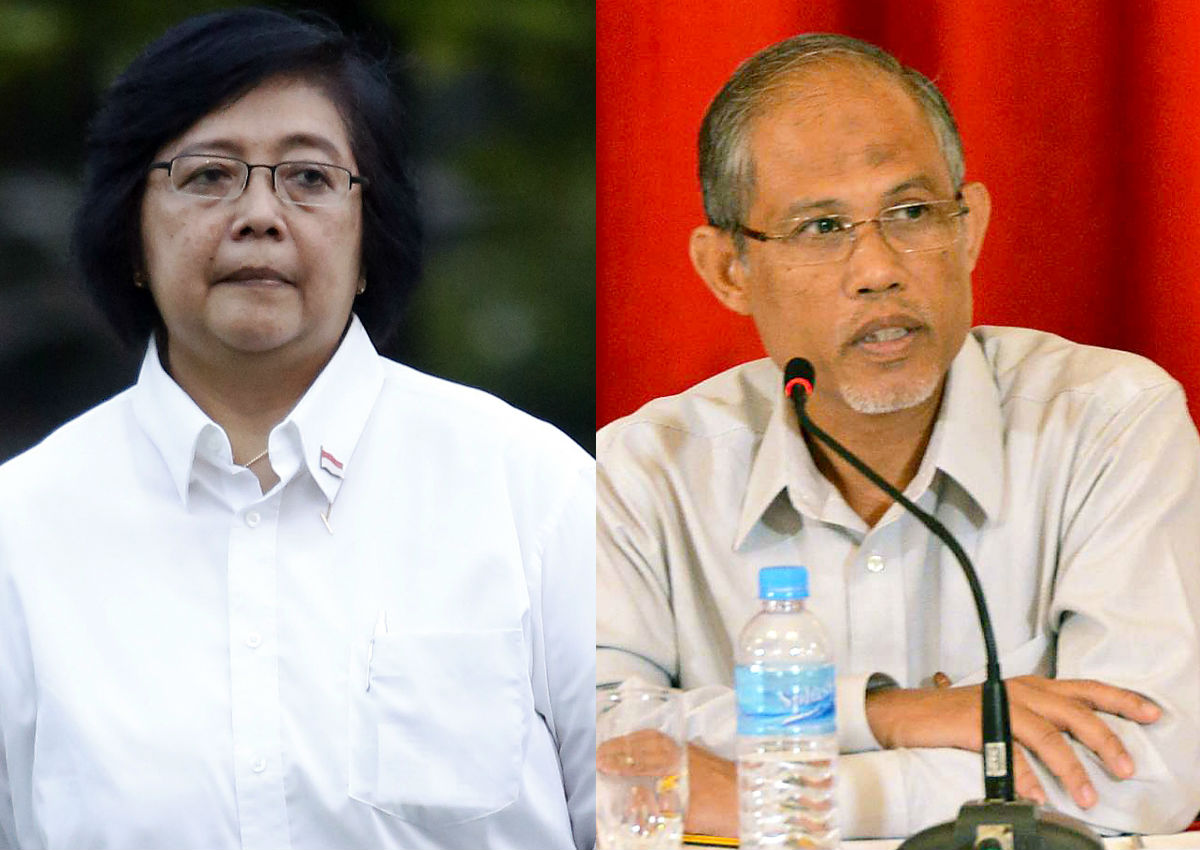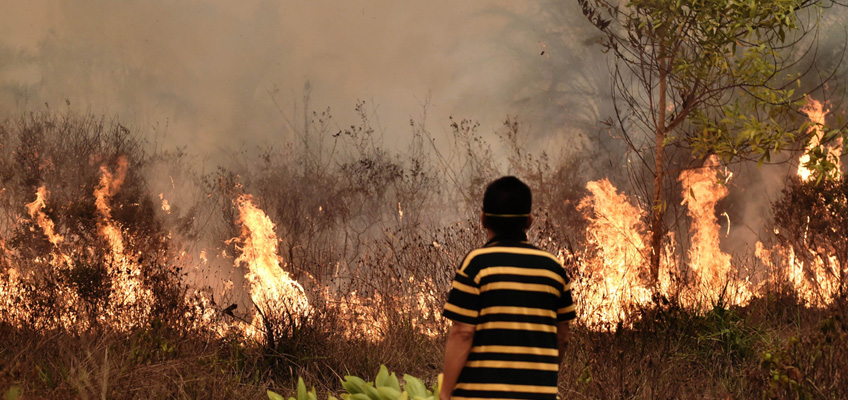SINGAPORE – The Transboundary Haze Pollution Act (THPA) has nothing to do with sovereignty or national dignity, the Ministry of the Environment and Water Resources (MEWR) emphasised in a sharply-worded rebuke to Indonesian Environment and Forestry Minister Dr Ir Siti Nurbaya Bakar.
Dr Nurbaya had said earlier on Monday (June 13) that Singapore could not “tread on the realm of law that was under Indonesia”, and that Singapore’s actions showed that it “did not respect Indonesia”.
Reiterating that the THPA is targeted at commercial entities responsible for transboundary haze pollution in Singapore, an MEWR spokesperson said: “The THPA was drafted with advice from experts in international law and complies with international law. It is not directed at any individual nor company based on nationality.”
“Indonesia should welcome this additional tool to curtail irresponsible activities that have affected the health, social and economic well-being of Indonesians and people in the region.
“If anything, the companies will hide behind any opacity if they can, to avoid being held accountable and further perpetuate the haze problem that has plagued the region for decades.”
On May 11, Singapore’s National Environment Agency (NEA) had obtained a court warrant against an Indonesian company director after he failed to turn up for an interview despite being served a legal notice.
The Indonesian was summoned to explain measures his company has taken to mitigate fires on its concession land.
The Indonesian government then issued a series of conflicting statements, starting with its Foreign Ministry spokesperson Arrmanatha Nasir, who claimed that Indonesia had lodged a “strong protest” against NEA’s actions.
A spokesperson from Singapore’s Ministry of Foreign Affairs (MFA) clarified one day later on May 13 that it did not receive any presentations from the Indonesians.
“Mr Arrmanatha’s remarks are puzzling,” the MFA spokesperson said.
On Sunday (June 12), Indonesian Vice-President Jusuf Kalla said that Jakarata would not allow its citizen to be “processed” under Singapore’s law, The Straits Times reported.
“If there is an offence, Singapore can take action, but (the offence) occurred in Indonesia, that is the concern,” he said in the same report.
Commenting on Dr Nurbaya’s comments, veteran Singaporean diplomat Mr Bilahari Kausikan said on his Facebook page on Tuesday (June 14) that Singapore is enforcing its own laws.
“The only reason we are “entering into their legal domain” is because they have been singularly ineffective in enforcing their own laws,’ he wrote.
The straight-talking ambassador-at-large added: “What they are claiming is we cannot enforce our own laws against an Indonesian national which is tantamount to claiming extraterritorial immunity for Indonesians.
“This is not merely arrogant but patently absurd, or at least absurd if one did not have reason to suspect that the individual in question was not connected to senior Indonesian figures who may be complicit in the environmental crimes we want to question him about.
“From that perspective the Indonesian position is entirely logical.”
grongloh@sph.com.sg


















